The Means of Production
Snapshots from the Field—Part II
With Mitt Romney’s famous “binders full of women” line followed by Round House Theatre Artistic Director Ryan Rilette’s comment “there’s not enough [women] in the pipeline right now” being sentences still uttered more than a decade into the twenty-first century, it seems the right moment to follow up “The Means of Production: Snapshots from the Field” with another alternative portrait of the current theatre landscape—this time with an eye on women theatre artists producing groundbreaking work on their own.
Michelle Hensley, Ten Thousand Things
Michelle Hensley, intrepid Minneapolis-based founder and artistic director of Ten Thousand Things, produces Shakespeare, Brecht, Greek tragedy, and American musicals for nontraditional audiences such as residents of homeless shelters and low-income housing, and in nontraditional settings like prisons and community centers where theatre experiences are nearly unheard of. Now in her twenty-fourth year as artistic director, Hensley, who produces three shows per season (directing two of them herself), says Ten Thousand Things’ audiences make her and her already top-notch collaborators (an impressive roster of critically acclaimed actors) better artists because working without production values that traditional theatre spaces provide forces them to focus solely on the actors’ ability to draw the spectators in through theatre’s main concern: storytelling and empathy building. Her guiding principle is never to condescend and to present stories that are big enough for her audiences.
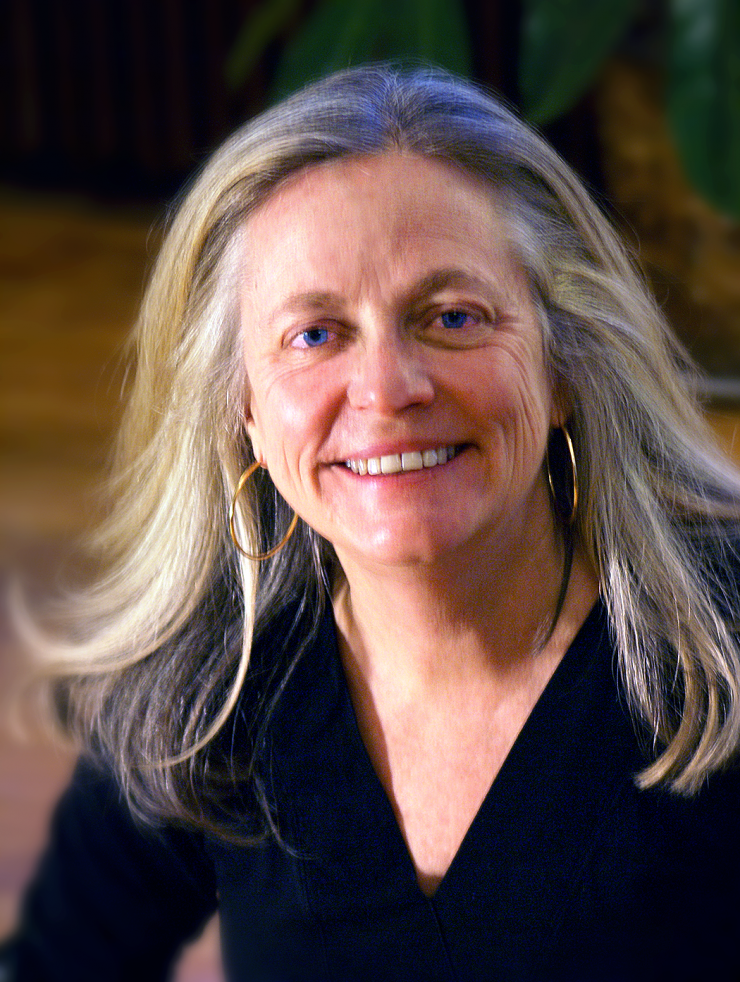
Photo courtesy of Ten Thousand Things.
A typical production schedule for each TTT show amounts to thirty-two total performances: seven or eight at correctional facilities; seven or eight at homeless shelters and rehabs; twelve to sixteen for the general public; and two to three in rural Minnesota. The shows presented for the general public tend to sell out right away and help to defray the costs of presenting the work for free at all the other venues. Hensley encourages those ticket buyers to become donors to the company; with primarily three women working out of their homes, TTT has an annual budget of more than $600,000. In addition to the classic works she produces, such as plays by Brecht and Shakespeare, Hensley maintains an ongoing collaboration with playwright Kira Obolensky, whose theatrical vision inhabits the epic quality TTT’s audiences require. Hensley’s book about the discoveries TTT has made about theatre with the help of its nontraditional audiences, All The Lights On, was recently published by HowlRound and the Minnesota Historical Society Press.
For Kym Moore chief inspirations include time travel, parallel universes, and the complexity of language. Says Moore, ‘In African-American vernacular speech, asking what time it is doesn’t necessarily refer to literal time. In that context, “time” reverberates, refracts, and is making references to a multitude of possibilities and meanings at the same time.’
Kym Moore, AntiGravity Theatre Project
Director and writer Kym Moore creates interdisciplinary and multimedia performances under the umbrella of AntiGravity Theatre Project, a company she co-founded with director Michael Williams in 2012 while producing Erik Ehn’s play, Yermedea Raw, as part of Ehn’s Soulographie project. This past September, Williams created and presented a hybrid theatre-dance-music work, Nellie/Nellie, at the Philly Live Arts Festival, while Moore has been heavily developing her script, Time’s Up: Love, Friendship, and Transformation Across the Fourth Dimension (a play she began in 2003). Chief inspirations include time travel, parallel universes, and the complexity of language. Says Moore, “In African-American vernacular speech, asking what time it is doesn’t necessarily refer to literal time. In that context, ‘time’ reverberates, refracts, and is making references to a multitude of possibilities and meanings at the same time.”
In 2013, Moore began collaborating with composer and media artist Todd Winkler to incorporate his live video processing systems that transform the actors’ bodies, which Moore calls “a very challenging but rewarding process. It requires everyone—actors, writer (I'm often writing in the room as we go), and all of the technical staff—to work together as a unit. Every moment is constructed in direct response to each theatrical element and as such, it becomes a live tapestry of sound, image, movement, and text.” The performance runs April 30–May 3, 2015, at the Granoff Creative Arts Center at Brown University.
Rosalba says it’s the language, musicality, and prismatic structure of Christine’s work that draws her to it. In Rosalba’s words, ‘the politics of the work live inside the artistic form and rise off it like steam.’
Christine Evans and Rosalba Clemente
Australian artists Christine Evans (playwright/composer) and Rosalba Clemente (director/playwright/actor) first worked together on a show at Sydney’s Belvoir Street Theatre in the late nineties. They soon rejoined forces in a freezing church hall to build an Italian women’s community choir for another Belvoir St. production. Rosalba then directed Christine’s acclaimed first play, My Vicious Angel, at Vitalstatistix in Adelaide; the play, for which Christine also composed and directed music, went on to Belvoir St. and the Adelaide International Festival of the Arts.
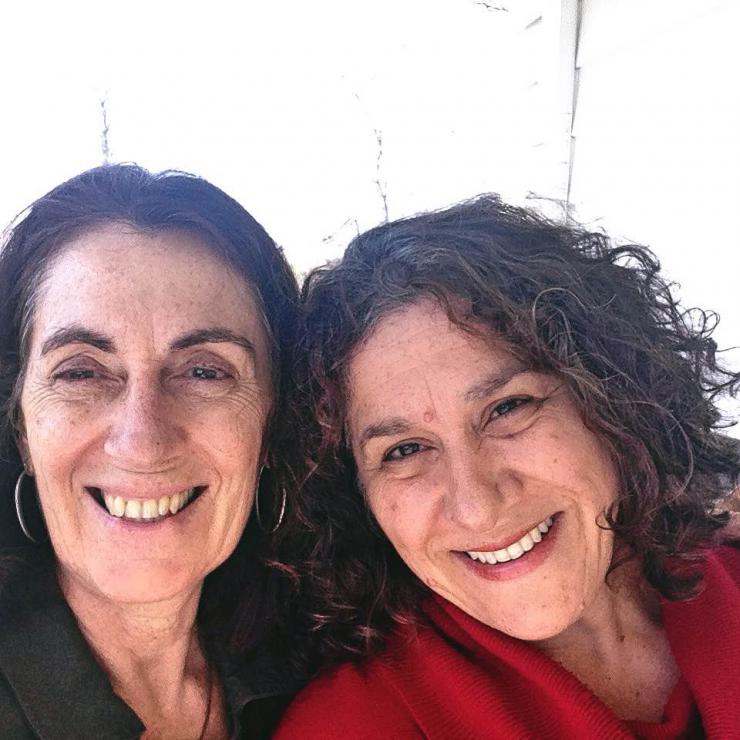
Photo Courtesy of Charlotte Meehan and Adara Meyers.
A long hiatus, triggered by Christine’s relocation to the United States, ended when Rosalba directed Christine’s Trojan Barbie as the centerpiece for the 2013 ADSA Conference in Adelaide, where Christine gave a keynote address on her multimedia work You Are Dead. You Are Here. During that fertile reconnection, they conceived what Rosalba terms a “transpacific boutique independent project” model to enable their collaboration across continents.
Rosalba says it’s the language, musicality, and prismatic structure of Christine’s work that draws her to it. In Rosalba’s words, “the politics of the work live inside the artistic form and rise off it like steam.” For Christine, Rosalba’s imaginative range as director, performer, and writer allows for fluid and intuitive collaboration across text, music, and staging. Rosalba visits Georgetown University (where Christine is a faculty member) this spring to direct Christine’s play, Slow Falling Bird. During her residency, the two will workshop Christine’s new piece, Cloudless, set in Western Australia, with the long-term goal of Australian production and touring to festivals.
Masha Obolensky and Melia Bensussen
Playwright Masha Obolensky and director Melia Bensussen’s collaborative relationship began in 2010 with the play, Not Enough Air. Says Obolensky of the project, “it started an ongoing conversation about the work that we want to do, the work that matters to us. We shared our reading lists and thought about what work we were not seeing represented on stage. What stories did we think were not being told?” As rehearsals progressed and their deep commitment to an open process and equal participation and dialogue became more and more apparent, they quickly realized how little weight the designations of “playwright” and “director” actually held. Fast-forward to 2013, and the pair decided to create The Bluebeard Project, a co-written performance work based on fiction writer Angela Carter’s retelling of a classic fairytale. While this project began with each artist drafting on shared Google docs, the process—which most recently culminated in a reading as part of The Huntington Theatre’s Summer Workshop in 2014 —revealed how invaluable writing together in real time could be. “We wrote many of the scenes together, letting go of assignments. We would write, argue, discuss, rewrite, assign each other parts, write, read aloud, and so forth,” recalls Bensussen. “It was much like a microcosm of a rehearsal room—we are actors, directors, and writers to each other —and we argued taking the other’s side frequently. By the time we finished a scene, we truly could not recall who did what, and so it is a surprise and a joy to re-encounter the material each time.”
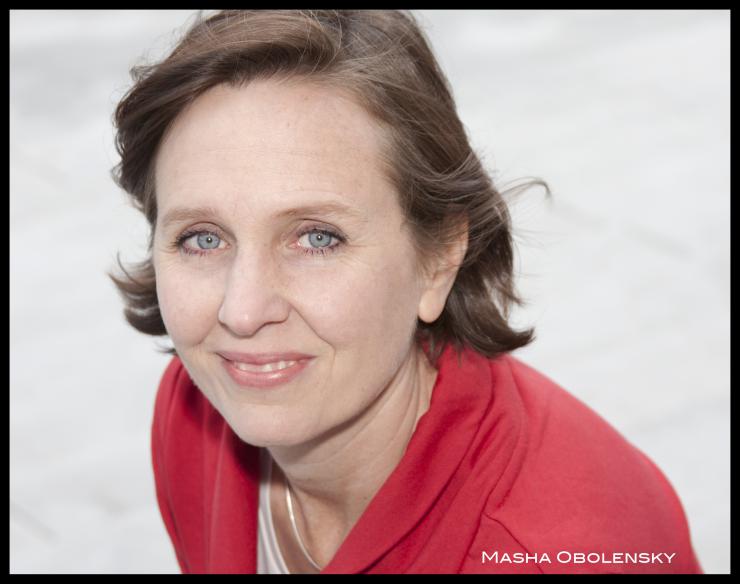
Forden Photography.
Christina Ham and Workhaus Collective
Minneapolis-based playwright Christina Ham says that producing with Workhaus Collective has influenced her creative process because it has emboldened her to not merely rely on a regional theatre to produce her work. “As an artist I used to be passive and feel powerless about my role in the theatre and waiting for others to say ‘yes’ or ‘no.’ My involvement with Workhaus allows me to take risks I wouldn't normally feel comfortable taking because I am being supported by a playwrights’ collective that understands the playwright's vision as tantamount and that a ‘successful’ production for our collective is constantly being redefined in accordance with what the producing playwright’s goals are for his/her show.”
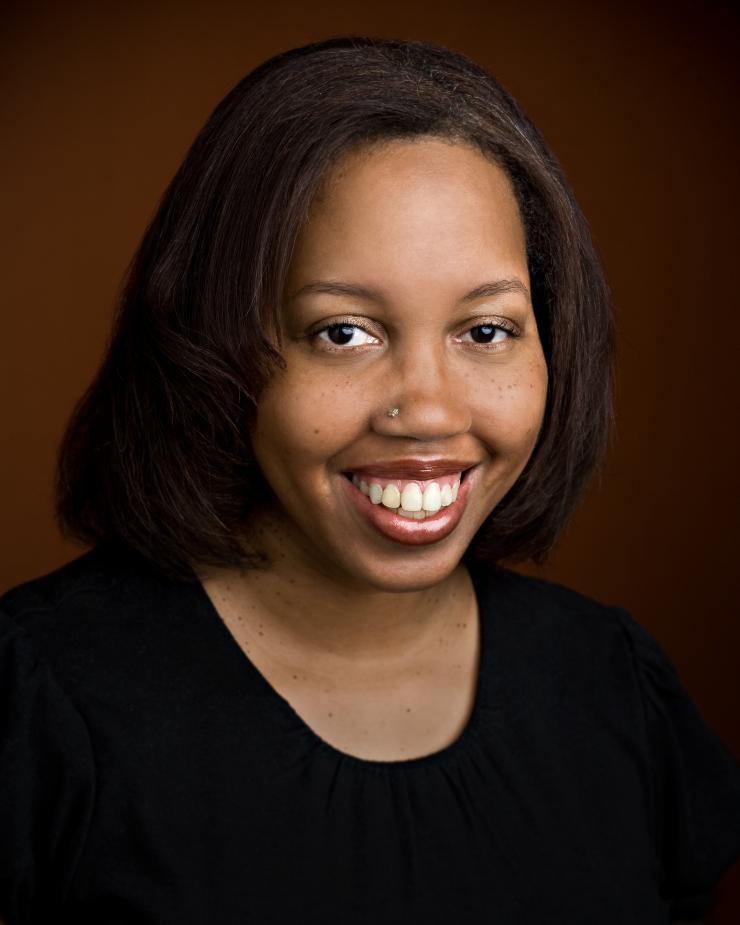
Founded in Minneapolis in 2006, Workhaus Collective has produced twenty world premiere productions to date. Since 2007 they have been the company-in-residence at the Playwrights’ Center. As a playwright-run collective in which the playwright acts as artistic director for his/her production, Ham says, “we feel that this shift away from the top-down regional theatre production model will ultimately aid in the advancement of the playwright in the American theatre by empowering them in the creative process. We are proud that not only do we fully produce original works by Minneapolis-based nationally recognized playwrights, but we have also presented workshop productions when the playwright has deemed that development and not a full production is the desired end game.” Former Workhaus Collective member Deborah Stein's Chimera is an example of this along with Ham’s work-in-progress, Glyph.
Ham is currently working on a commission that is an adaptation for St. Paul's SteppingStone Theatre called Sweet Clara's Freedom Quilt. She is also working on a radio noir for KBEM Jazz FM with Workhaus Collective member Dominic Orlando and playwright Josh Wilder, among several other projects.
Deborah Stein and Suli Holum Projects
New York and California-based theatre artists Deborah Stein and Suli Holum of Stein | Holum Projects first met in college. Holum went on to become one of the co-founders of Pig Iron Theatre Company in Philadelphia; Stein, who joined later as an intern, eventually wrote six of Pig Iron’s shows. After Pig Iron, they both pursued independent careers in the regional theatre and lost touch. When they ran into each other years later at a dinner party they talked about missing the collaborative ethos of Pig Iron and wanted to reclaim it for their own creative partnership. Holum wanted to perform and create a solo show with Stein; this project became Chimera, which began its development at HERE Arts Center (NY) through the HARP program, went on to further development with the Workhaus Collective in Minneapolis, and received rave reviews when it premiered at HERE as part of the Under the Radar Festival in January 2012 and again for its remount at The Gate Theatre in London in 2014.
Currently, the partners are revising their play The Wholehearted for a national tour. They are also working on Movers + Shakers, a musical with songs by James Sugg, which has been workshopped at New Dramatists, Berkeley Rep, Clubbed Thumb, and Playwrights Horizons. Movers + Shakers creates a fictional story based on the well-known escapades of figures such as Anthony Wiener, Mark Sanford, and Bill Clinton to explore the virtual mating habits of our twenty-first century political elite. They’re interested in sex, power, hubris; really smart people doing foolish things; and the vulnerability implicit in the phrase “singing your heart out.” With thoughts pointing into the farther future, they’re also starting to dream up a show called Man Camp about women working in the oil fields of North Dakota.
Jennifer Johnson
Jennifer Johnson, Co-Director of the Charlestown Working Theatre, grew up in Charlestown and at the CWT. “I started at the CWT when I was nine years old. Charlestown was a tough neighborhood in those days when founder Margaret (Peggy) Ings was at the helm. Peggy created a theatre cooperative made up of old and new residents at a time when Charlestown was struggling with crime, busing, drugs, and poverty. In 1993, when Johnson, her sister Kristin, and her husband John took over the CWT, then on the verge of bankruptcy and closure, she met Stacy Klein, Founder and Artistic Director of Double Edge Theatre. “Stacy is my mentor. I don’t know that I would be making theatre had I not started working with Double Edge. The work goes beyond the idea of theatre as a project to project structure, but as a life.” Jennifer, who is also a member of the Double Edge company, focuses her work on actor’s dramaturgy, and is currently working on DE’s 2015 Summer Spectacle, an indoor/outdoor traveling performance, which will premiere in July at DE’s Farm in Ashfield, MA.
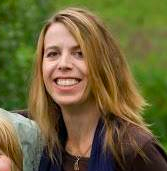
Charlestown Working Theater.
Of her work at CWT Johnson says, “we try to create a home for local and visiting artists to explore and experiment, as well as share their work. CWT also runs a successful education program. Recently one of our teens told a funder that at the CWT no one ever tells you your idea is too crazy. At first I was shocked, afraid the funder would not take us seriously. But then I thought, yes, we have to push forward the idea that imagination is the driving force here, the currency, for all of us. That is the radical act we hope we embody.”
Caridad Svich and NoPassport
Playwright and translator Caridad Svich’s artistic and production endeavors often arise hand in hand. She founded NoPassport in 2003, a US-based grassroots artist-driven arts alliance, advocacy group, and press, with a particular focus on Latino/a and Latin American artists. NoPassport reached out to over fifty performance, reading, and higher education venues around the world to kick off a March–April 2012 “reading scheme” of The Way of Water, Svich’s response to the tragedy of the Deepwater Horizon disaster in the Gulf of Mexico.
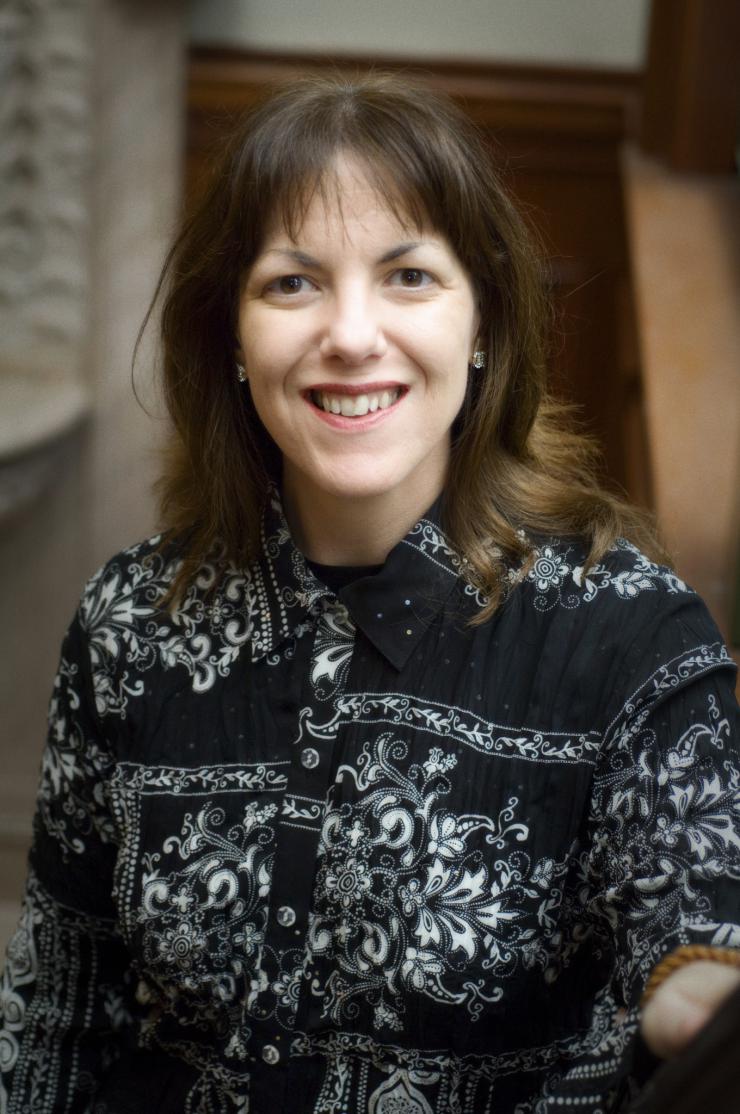
Photo courtesy of Croation World Network.
“Although the purpose was to raise awareness and sustained empathy for the continued environmental damage and human health-related issues, there was also a secondary purpose to the reading scheme, which dealt with effecting an alternative method for new play development,” says Svich. “The script at the first reading was not the same exact script as the one at the last reading. The project in and of itself allowed for living development of the piece to occur alongside discussions with artists, scientists, environmental activists, and audiences held after most of the readings.” While Svich remained the sole writer of the play, creating a worldwide ecology for new and socially engaged art shed new light on her process. “‘Exposing’ the work in lateral fashion across many venues posed a different way to think about and implement decisions about new writing,” says Svich. “Taking the means of ‘production’ and ‘development’ into personal and collective hands can be another way to allow work to breathe and live in open communities rather than gated ones.” The Way of Water opened at Brandeis University’s Spingold Theater Center on March 12, 2015.
In these few shining examples of women theatre artists working independently, we see a paradigm shift, a view into the future where the sky is the limit as more artists take control of their production means.

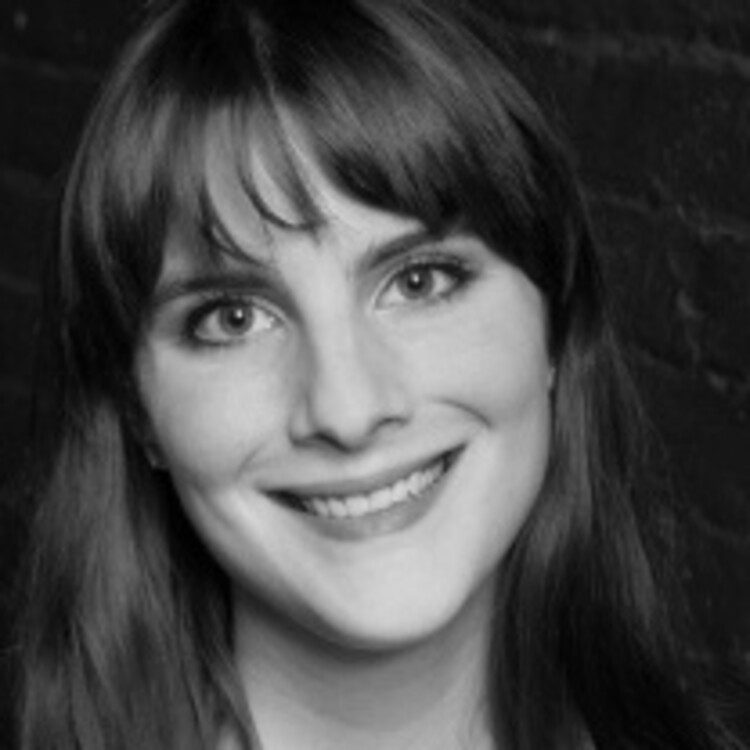

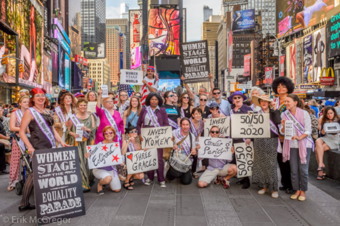

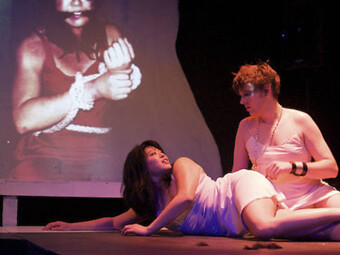



Comments
The article is just the start of the conversation—we want to know what you think about this subject, too! HowlRound is a space for knowledge-sharing, and we welcome spirited, thoughtful, and on-topic dialogue. Find our full comments policy here
By and about some badass women! Thank you - and I must add how very proud and honored I was to be in Part I. I'm very fortunate two know Charlotte and Adara and have been blessed by the opportunities I've had to work with them. Fearless, honest, and supportive of so many artists in the most genuine and decent ways. Our collaborations have been effortless. They have never let me down, they follow through, they keep their word. That's BADASS in my book!
I'm so great this article was written--thank you for this! But just a quick quibble: That comment was not a tweet sent by Ryan Rilette--it was a quote of something he said in a panel discussion. Also, it has been made fairly clear that the context of the statement was not how it was interpreted in that isolated quote. I find it unfortunate that that incident has been rolled into that intro as an equatable statement to Mitt Romney's. That's unfair to Ryan, as an artist, and as a champion of plays by women and female playwrights.